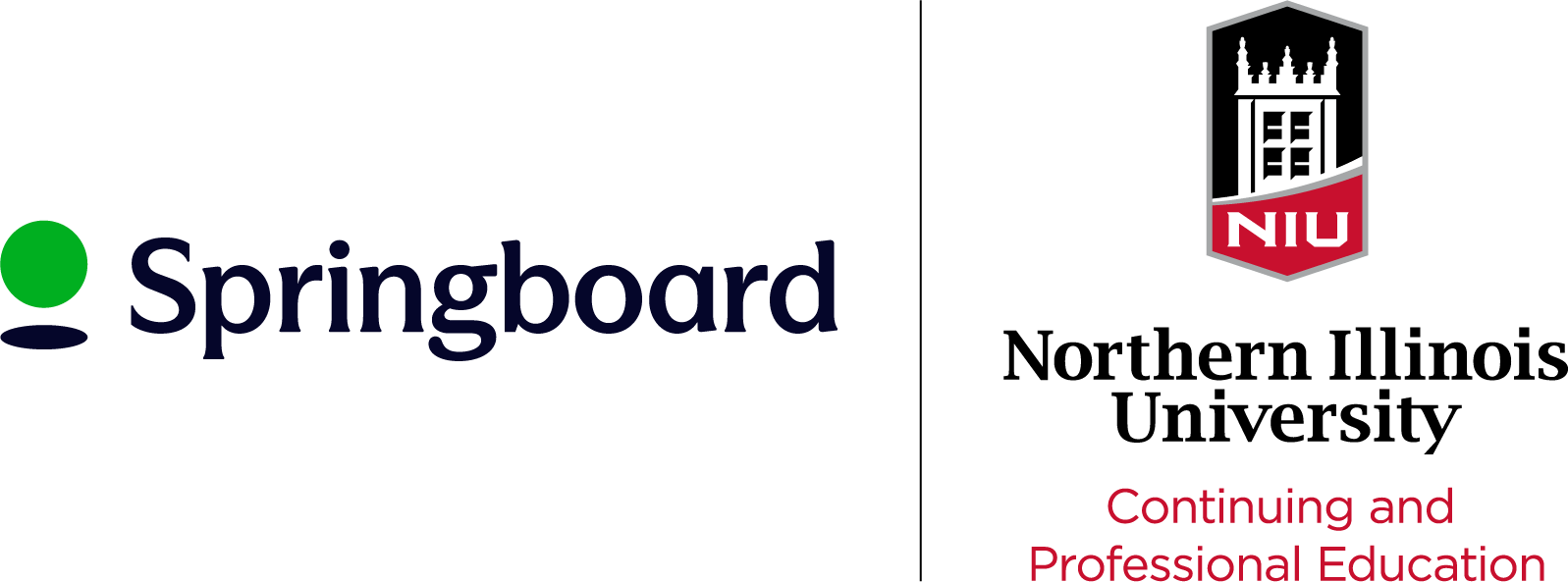In today's digital world, software engineers are the architects of innovation, building the applications, websites, and platforms that define how we live, work, and interact. Their influence is felt across industries and around the globe, as they develop the software that powers everything from our smartphones to complex enterprise systems.
Due to this ever-growing reliance on technology, the demand for skilled software engineers has never been higher. Companies across all industries are seeking talented individuals to create and maintain the software that drives their success. As a software engineer, you'll enjoy competitive salaries, high job satisfaction, intellectually stimulating work, and the opportunity to work with cutting-edge technologies.
The Software Engineering Bootcamp, created and delivered by Springboard and offered by Northern Illinois University CPE, is your pathway to this thriving field. You'll master the MERN stack (MongoDB, Express.js, React, and Node.js), a powerful and sought-after toolkit for web development.
Through hands-on projects and personalized mentorship, you'll develop expertise in JavaScript, the world's most widely used programming language, and build full-stack web applications. The bootcamp culminates in a professional-grade capstone project, showcasing your skills to potential employers.
Our flexible, 100% online format lets you learn at your own pace, while dedicated 1:1 mentor support ensures you receive guidance and feedback throughout your journey. Additionally, you'll gain access to comprehensive career services, including technical interview prep and job search strategies, to help you land your dream role in the tech industry.
Discover how the Software Engineering Bootcamp, created and delivered by Springboard and offered by Northern Illinois University CPE, can unlock your potential and propel you into a successful tech career.







